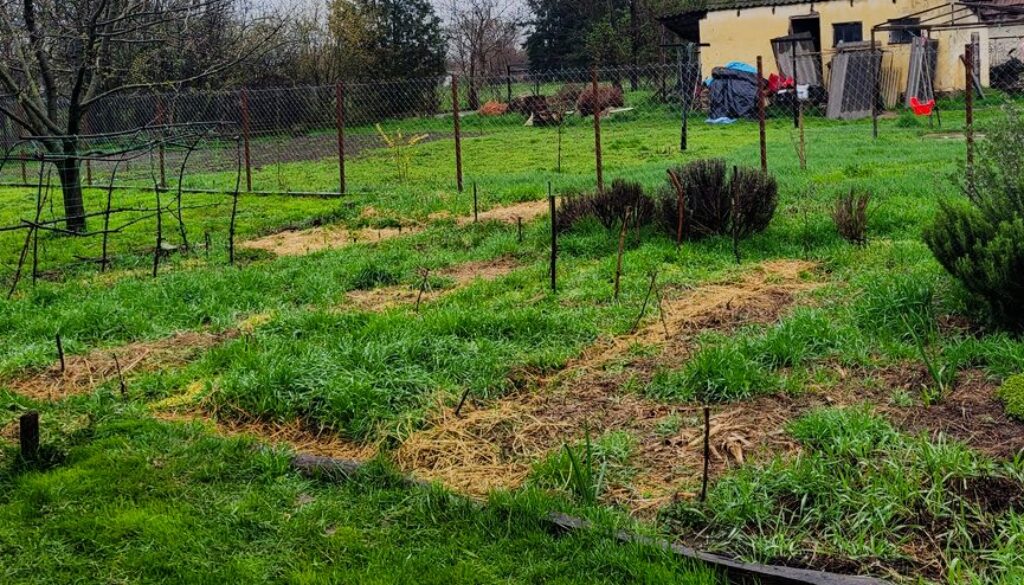Cultivate your soil
What is this?
This is my vegetable garden for this year. It’s 68 m² in total.
Nobody understands it. People wonder why it is not tilled, why there are “weeds” growing here, why it “looks abandoned.”and How can you grow anything in that mess? Well, there are a lot of things growing here: garlic, onions, carrots, radishes, peas, and cover crops.
Cultivate your soil
When I uncover my mulch just a little bit, I can see a lot of earthworms, earthworm castings everywhere, and other beneficial insects. The soil is not exposed, it is not tilled, and everything that is growing, including the veggies, contributes to cultivating the soil.
That’s my main goal: to cultivate the soil. In the vegetable garden, you’ll find “weeds,” grass, dynamic accumulator plants (like alfalfa or rumex), nitrogen-fixing plants (like clover, peas, or hairy vetch), decomposed organic matter from previous annual crops, leaves, wood, mushrooms, etc.
All of this contributes to the health and diversity of the soil. It’s an ecosystem, and over time, a layer of humus will be created on the top, just like in the dark soil that you can find in the forest.

Working with Nature
When we abuse chemical fertilizers (NPK), pesticides, tilling, etc., we are draining the life from and poisoning the soil. The soil loses nutrients, gets eroded, and its biodiversity diminishes; it becomes dirt—just lifeless.
This is where many people make a mistake when they don’t understand the consequences of their actions. The common response is, “Of course, to have a yield, I need to apply fertilizer every year.“
By doing this, they multiply the damage to the soil year after year without caring for nature and all the living beings in the soil. Every soil is fertile by default; we are the only ones who think we know better than nature and try to “improve” it while we are only damaging it.
Cultivate your soil and work with nature, not against it. Grow cover crops for your vegetable garden, don’t dig, don’t till your soil, and don’t pull out the grass or the “weeds.” Some of them are there for a reason—to fix what your soil is missing.



